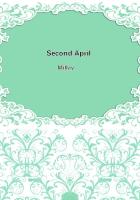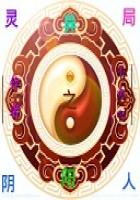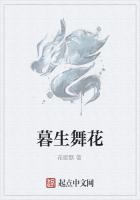"What a fool I was. When father gave me the money and tried to talk me out of the thought of marriage, I would not listen. I thought of what the girls who were married had said of it and I wanted marriage also. It wasn't Tom I wanted, it was mar- riage. When father went to sleep I leaned out of the window and thought of the life I had led. I didn't want to be a bad woman. The town was full of sto- ries about me. I even began to be afraid Tom would change his mind."The woman's voice began to quiver with excite- ment. To Doctor Reefy, who without realizing what was happening had begun to love her, there came an odd illusion. He thought that as she talked the woman's body was changing, that she was becom- ing younger, straighter, stronger. When he could not shake off the illusion his mind gave it a profes- sionaltwist. "It is good for both her body and her mind, this talking," he muttered.
The woman began telling of an incident that had happened one afternoon a few months after her marriage. Her voice became steadier. "In the late afternoon I went for a drive alone," she said. "I had a buggy and a little grey pony I kept in Moyer's Livery. Tom was painting and repapering rooms in the hotel. He wanted money and I was trying to make up my mind to tell him about the eight hun- dred dollars father had given to me. I couldn't de- cide to do it. I didn't like him well enough. There was always paint on his hands and face during those days and he smelled of paint. He was trying to fix up the old hotel, and make it new and smart."The excited woman sat up very straight in her chair and made a quick girlish movement with her hand as she told of the drive alone on the spring afternoon. "It was cloudy and a storm threatened," she said. "Black clouds made the green of the trees and the grass stand out so that the colors hurt my eyes. I went out Trunion Pike a mile or more and then turned into a side road. The little horse went quickly along up hill and down. I was impatient. Thoughts came and I wanted to get away from my thoughts. I began to beat the horse. The black clouds settled down and it began to rain. I wanted to go at a terrible speed, to drive on and on forever. I wanted to get out of town, out of my clothes, out of my marriage, out of my body, out of everything. I almost killed the horse, ****** him run, and when he could not run any more I got out of the buggy and ran afoot into the darkness until I fell and hurt my side. I wanted to run away from everything but I wanted to run towards something too. Don't you see, dear, how it was?"Elizabeth sprang out of the chair and began to walk about in the office. She walked as Doctor Reefy thought he had never seen anyone walk before. To her whole body there was a swing, a rhythm that intoxicated him. When she came and knelt on the floor beside his chair he took her into his arms and began to kiss her passionately. "I cried all the way home," she said, as she tried to continue the story of her wild ride, but he did not listen. "You dear! You lovely dear! Oh you lovely dear!" he muttered and thought he held in his arms not the tired-out woman of forty-one but a lovely and innocent girl who had been able by some miracle to project her- self out of the husk of the body of the tired-out woman.
Doctor Reefy did not see the woman he had held in his arms again until after her death. On the sum- mer afternoon in the office when he was on the point of becoming her lover a half grotesque little incident brought his love-****** quickly to an end. As the man and woman held each other tightly heavy feet came tramping up the office stairs. The two sprang to their feet and stood listening and trembling. The noise on the stairs was made by a clerk from the Paris Dry Goods Company. With a loud bang he threw an empty box on the pile of rubbish in the hallway and then went heavily down the stairs. Elizabeth followed him almost immedi- ately. The thing that had come to life in her as she talked to her one friend died suddenly. She was hysterical, as was also Doctor Reefy, and did not want to continue the talk. Along the street she went with the blood still singing in her body, but when she turned out of Main Street and saw ahead the lights of the New Willard House, she began to trem- ble and her knees shook so that for a moment she thought she would fall in the street.
The sick woman spent the last few months of her life hungering for death. Along the road of death she went, seeking, hungering. She personified the figure of death and made him now a strong black- haired youth running over hills, now a stem quiet man marked and scarred by the business of living. In the darkness of her room she put out her hand, thrusting it from under the covers of her bed, and she thought that death like a living thing put out his hand to her. "Be patient, lover," she whispered. "Keep yourself young and beautiful and be patient."On the evening when disease laid its heavy hand upon her and defeated her plans for telling her son George of the eight hundred dollars hidden away, she got out of bed and crept half across the room pleading with death for another hour of life. "Wait, dear! The boy! The boy! The boy!" she pleaded as she tried with all of her strength to fight off the arms of the lover she had wanted so earnestly.














